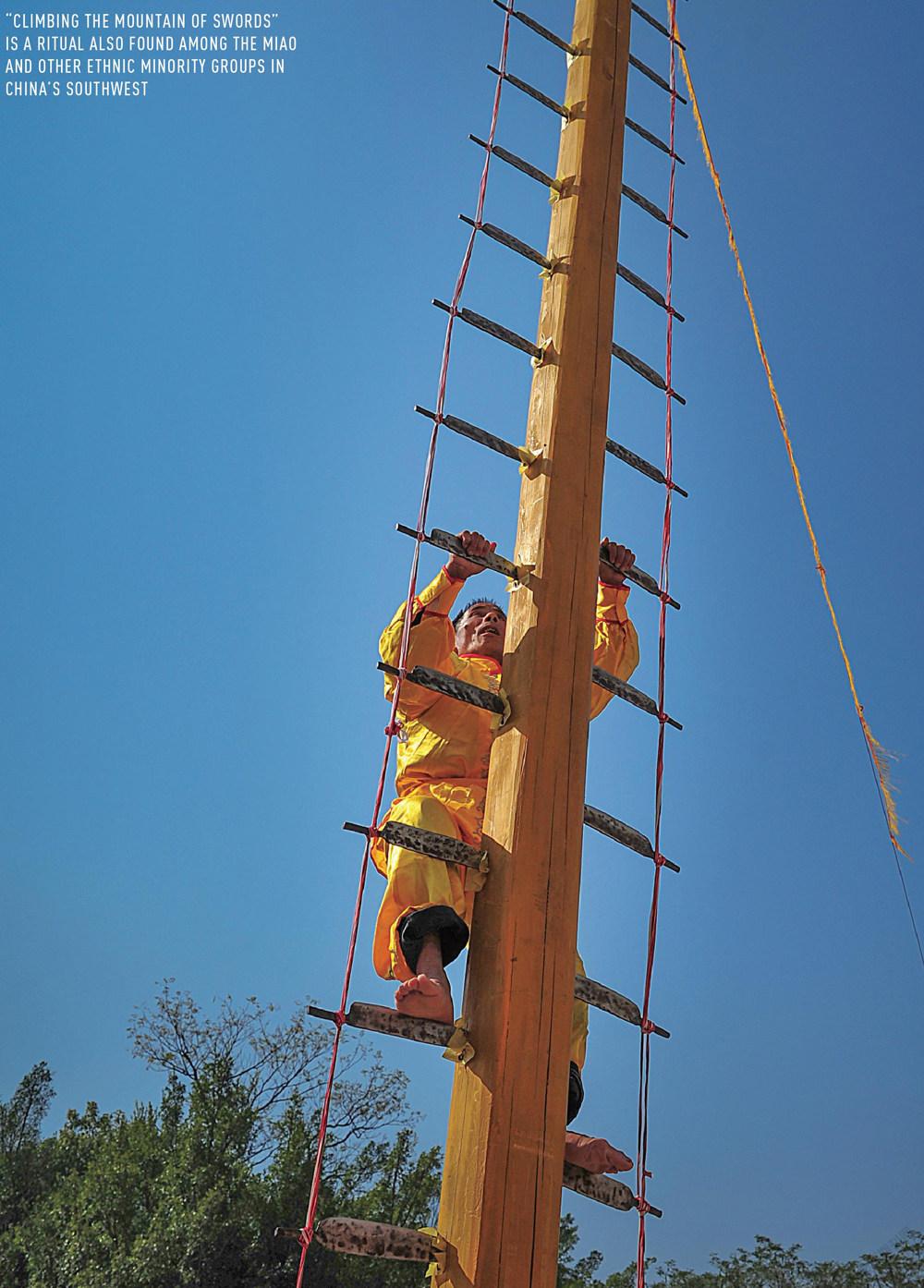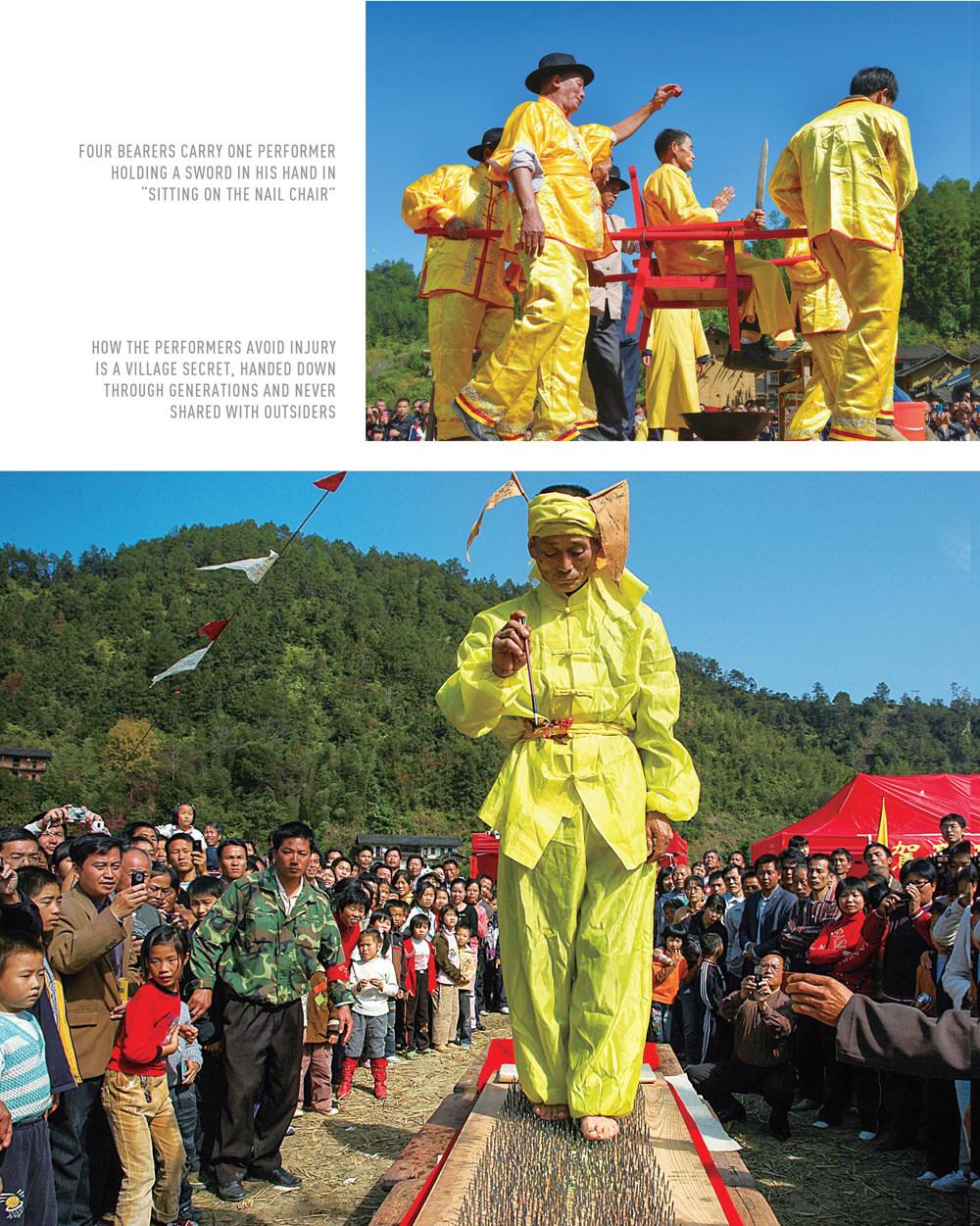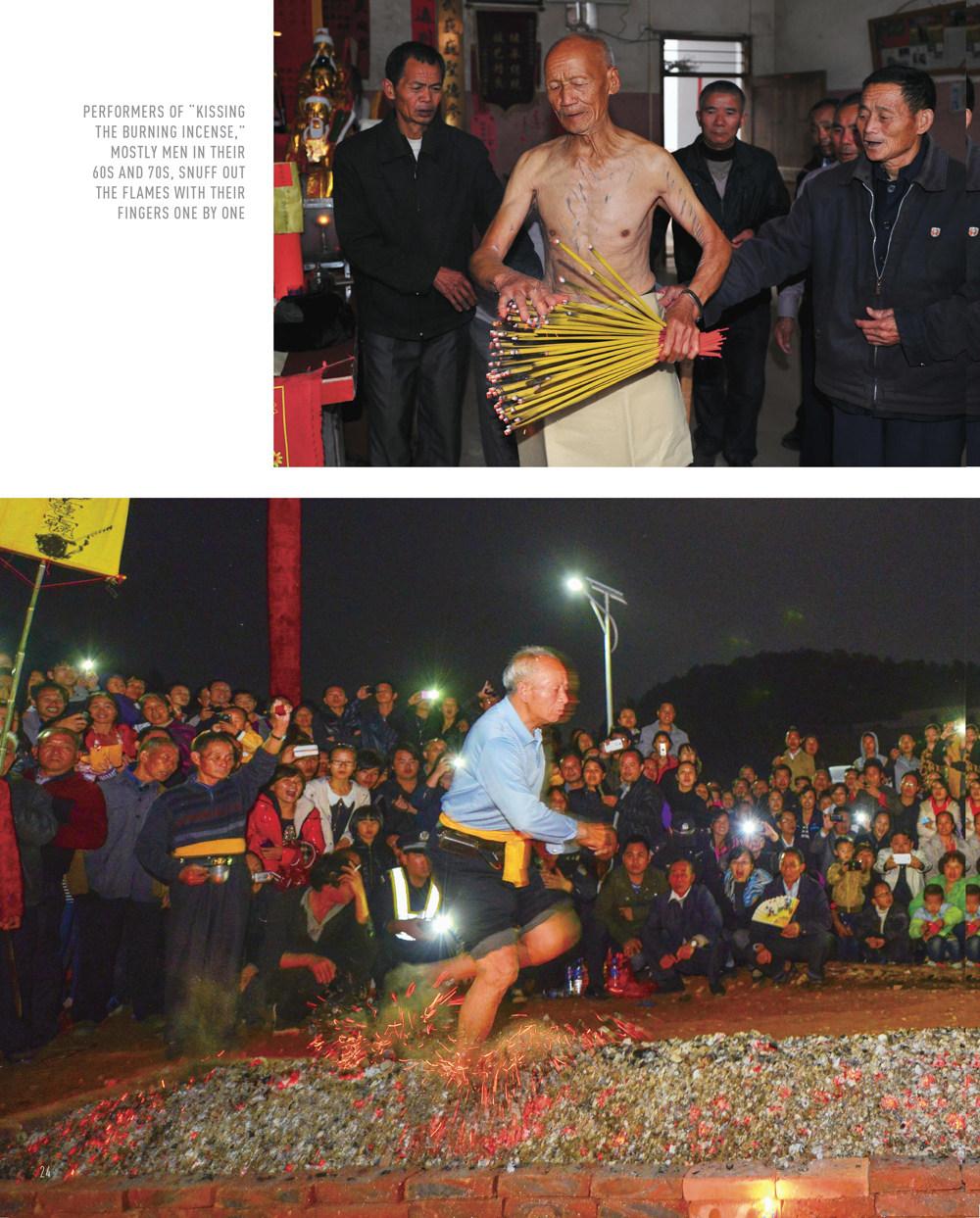Walking on Fire
贺文文







One Fujian village preserves the tradition of celebrating the harvest with painful acrobatics
在福建省武平縣的一个小山村里,村民们用“刀山火海”纪念先祖们刀耕火种的艰辛
Photography by Li Guochao (李国潮)
As one of the world’s oldest farming civilizations, China has created numerous festivals to pray for or celebrate a good harvest. Though many of these rituals are disappearing due to urbanization, Zhongtuan village in Wuping county, Fujian province, has held on to several heart-stopping harvest traditions.
The 15th day of the 10th lunar month is leisure time for villagers after gathering in the harvest and sowing their fields for the coming year. On this day, the farmers of Wuping hold a “day of sacrifices (醮会日)” to thank their ancestors and pray for next year’s crops.
Zhongtuan’s 1,000 residents, most of whom belong to the Lan (蓝) clan, speak the Hakka dialect but claim descent from the ethnic She (畲) people, who settled in the area between the Song (960 – 1279) and Yuan (1206 – 1368) dynasties. The villagers have become locally renowned for dangerous acrobatic stunts at their harvest festival, summarized as “climbing a mountain of swords and walking on a sea of flames.”
Throughout the day, firecrackers, drums, and pipes sound a continuous fanfare, while bare-chested farmers turn into master acrobats as they perform: climbing barefoot up a ladder with 36 sharp knives fixed to the rungs; walking barefoot across a bed of burning charcoal; plunging their bare hands into a pot of boiling oil to scoop out fried rice cakes; stepping or sitting on a nail-studded plank; stubbing out incense sticks or firecrackers on their bare skin (known as “kissing the burning incense”); and more. Miraculously, villagers emerge from each of these stunts without a scratch. How they manage this is a closely guarded secret, but these painful performances pay tribute to the hardships endured by the villagers’ ancestors, who settled in a barren mountainous region and transformed it into today’s fertile farmland.
Villagers start sharpening and testing the knives three to five days before the festival
“Climbing the mountain of swords” is a ritual also found among the Miao and other ethnic minority groups in China’s southwest
Four bearers carry one performer holding a sword in his hand in “sitting on the nail chair”
How the performers avoid injury is a village secret, handed down through generations and never shared with outsiders
In “applauding the firecracker,” a bare-chested performer holds a firecracker in his hands as it explodes
In “lifting the rice bucket,” the performer lifts up a container of rice, using a sharp sword inserted in the middle as a handle
Performers of “kissing the burning incense,” mostly men in their 60s and 70s, snuff out the flames with their fingers one by one
The whole village gets involved in setting up the acts
The use of fire and knives are supposed to symbolize the She people’s slash-and-burn agriculture

